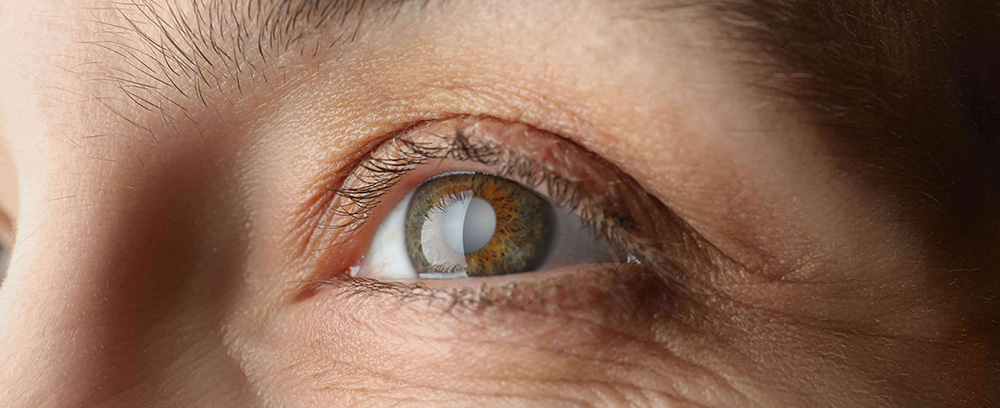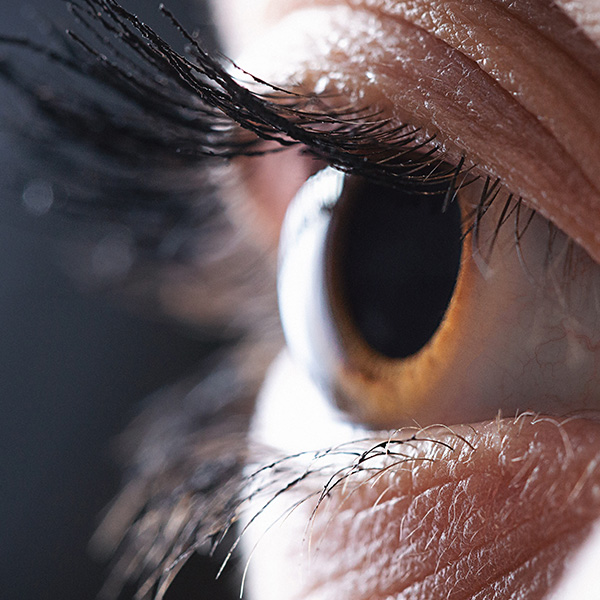
Cataract is a clouding of the normally clear lens of your eye. Clouded vision caused by cataracts can make it more difficult to drive a car (especially at night), read or to see clear. Most cataracts develops slowly and don’t disturb your eyesight early on! Some of the risk factors that increase your risk of cataracts include
Increasing age
• Previous eye injury or inflammation
• Prolonged use of corticosteroid medications
• Obesity & Diabetes
• High blood pressure
• Smoking & Alcohol
Some of the signs and symptoms of cataracts include:
• Fading or yellowing of colors
• Sensitivity to light and glare
• Increasing difficulty with vision at night
• Blurred, clouded, or dim vision
• Frequent changes in eyeglass or contact lens prescription
• If you develop sudden vision changes, such as double vision or flashes of light, sudden eye pain, or sudden headache, make an appointment for an eye exam if you notice any changes in your vision.
– Cataract types
• Nuclear Cataracts(Cataracts affecting the center of the lens)
• Cortical Cataracts (Cataracts that affect the edges of the lens)
• Posterior Subcapsular Cataracts(Cataracts that affect the back of the lens)
• Congenital cataracts (Cataracts you’re born with)
– THE CATARACT SURGERY?
In a phacoemulsification procedure, an incision is first made in the cornea, the outer covering of the eye. A phacoemulsification instrument uses ultrasonic waves to break up the cataract. Pieces of the cataract are then suctioned out. To repair the patient’s vision, a folded intraocular lens is pushed through the same incision and opened in place.
Patients taking medicine for blood thinning usually are asked to stop for two weeks before surgery!
– Phacoemulsification for cataracts
Femtosecond Laser – Cataract Surgery (next generation of cataract surgery) Femtosecond Laser is a needle-free and blade-free surgery for you.
The laser allows your surgeon to plan and perform a procedure that’s completely customized for each of your eyes. Imagine a device which can create a 3-dimensional micron level scan of your eye and then dissolve your cataract in 10 seconds without making a cut into the surface of the eye. No-needles, no-blades just perfect precision surgery.
The natural lens (lens) that has lost its function in both operation methods is taken out from the eye and an artificial intraocular lens (lens) will be placed in.
– How To Choose The Best IOL For Your Cataract Surgery
There is no single option that is best for all patients. You must consider your hobbies, activities, lifestyle, work-related tasks, etc. to decide which lens is best for you.
Monofocal IOLs
Most cataract patients choose monofocal IOLs that allow them to focus on things at a distance and use reading glasses when needed. Bifocal IOLs are divided into two distinct segments for different vision powers, the first for distance vision and the second for near vision.
Trifocal IOLs
Trifocals, also known as lined trifocals, feature three areas of focusing power, each separated from the other with a vivid line. The three windows allow for focusing on distant objects, intermediately distanced objects, and for up close.
EDOF IOLs (extended depth of focus)
Extended Depth of Focus IOL addresses presbyopia and delivering a full range of continuous vision.
TORIC IOL
lenses used at the time of cataract surgery to decrease post-operative astigmatism.
NET GÖZ EYE SURGERY CLINIC LENSES BRANDS USED IN CATARACT SURGERY
ZEISS CT-ASPHINA 603P MONOFOKAL
ZEISS CT-LUCIA 201P MONOFOKAL
ZEISS CT-ASPHINA 409MV MONOFOKAL COLORMATIC
ZEISS CT-LUCIA 601 PY MONOFOKAL COLORMATIK
ZEISS AT LISA 809 MP BIFOKAL
ZEISS AT LISA TRI 839 MP TRIFOKAL
ZEIS AT TORBI BI-TORIC 709 MP BIFOKAL TORIC
ABBOTT SENSAR1 A1300 HİDROFOBIK MONOBLOK
ABBOTT TECNIS1 ZCB00 HIDROFOBIK MONOBLOK
ABBOTT TECNIS ZMBOO MULTIFOKAL ACRYLIC
ABBOTT TECNIS ZMTOO MULTIFOKAL TORIC ACRYLIC
ABBOTT TECNIS ZCT150 MONOFOKAL ASPHERIC TORIC
ALCON SN60NF ACRYSOF IQ MONOFOKAL
ALCON SN6AD1 ACRYSOF IQ MULTIFOKAL RESTOR
ALCON SND1TX ACRYSOF IQ MULTIFOKAL RESTOR TORIC
ACRIVAup REVIOL MFM611 MULTIFOKAL
ACRIVAUD REVIOL BBMFM611 MULTIFOKAL
ACRIVAUD UD613 MONOFOKAL
ACRIVA BBUD613 MONOFOKAL
BIOTECH VISIONCARE EYECRYL DIHYS600ROH MULTIFOKAL
BIOTECH VISIONCARE EYECRYL ASHFY600 HYDROPHOBIC IOL
BIOTECH VISIONCARE EYECRYL PLUS600 HYDROPHILIC IOL

